Humanitarian crises
Largely brought on by sudden onset and slow-onset natural disasters, humanitarian crises are increasingly prevalent in the Pacific.
During responses to humanitarian crises in the Pacific, sexual and reproductive healthcare is often under-prioritised and under-resourced. As a result, women and girls of reproductive age and vulnerable and marginalized groups are disproportionately affected and facing increased health and psychosocial risks.
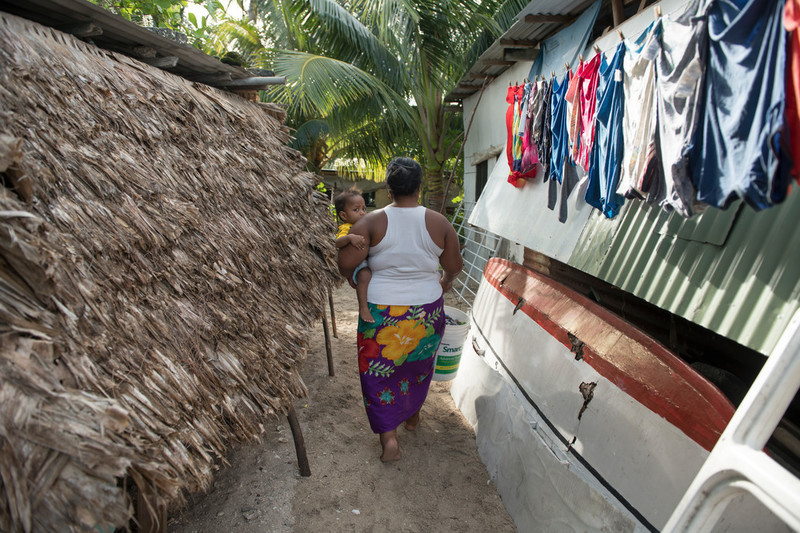
Fragile environments
Low topography, rising sea levels and insufficient fresh water supply leaves Kiribati’s population vulnerable to the effects of the climate crisis.
The fragility of the outer islands of Kiribati during natural disasters is compounded by their geographic isolation, which makes transportation and communication during post-disaster relief and response both expensive and difficult.

Coastal exposure
The majority of the population of 115,000 people live a subsistence lifestyle.
Communities are geographically dispersed across 33 atolls covering 3.5 million square kilometres in the central Pacific Ocean. The population and infrastructure within Kiribati are largely concentrated on the coast, where communities face increased exposure to climate threats and natural hazards such as tsunamis, earthquakes, king tides, flooding, droughts, and occasionally cyclones.
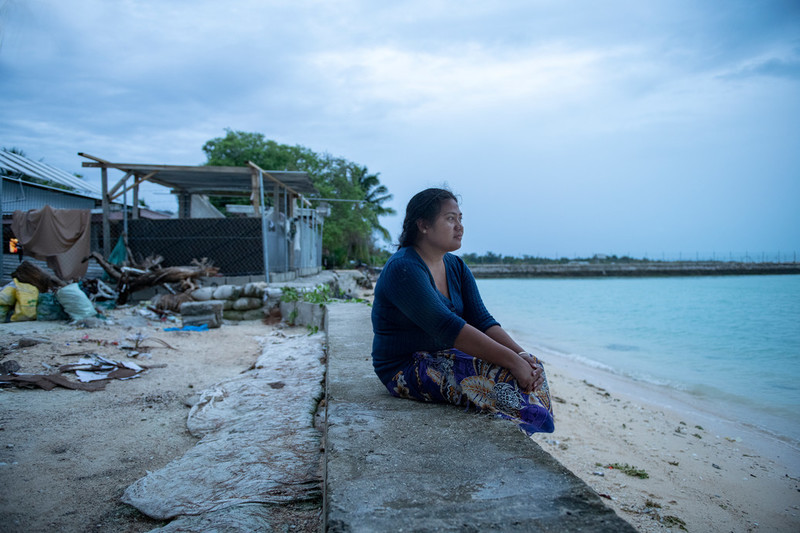
Takaria, leader and youth organizer in the Tebikenikua community
Takaria will be running to be a Member of Parliament in Kiribati in 2020.
“I assist the youth with family problems and family planning and disasters. In our community there are unforeseen pregnancies, domestic violence, and disasters such as high tide waters and strong winds, which can also affect this community. The Kiribati Family Health Association (KFHA) is the key point for us with outreach and training so people in this community know how to prevent and treat STIs, etc. They all know where the KFHA clinic is and that they can get counselling or services there. The problem now is you can’t survive with the sea rise levels. I want all members of my community to live better and have better health and peace.”

Susan*, sex worker
Susan receives care at the Kiribati Family Health Association (KFHA) including a pap smear.
Susan*, 28, is a sex worker from the town of Betio on the main island of Kiribati. Originally from an outlying island, she moved into Tarawa to seek work. Unable to find employment that would fulfill her dream of sending money back to her two children, she was introduced to sex work. With other sex workers, she regularly travels out to the large cargo ships from China, Philippines and Korea anchored off the coast of Kiribati. Despite her new income, she still can’t speak with her children or see them due to the restrictive costs involved of travel between islands.
*pseudonym

Theta, 25-year-old mother and youth volunteer
Theta is part of the Humanitarian Youth Club set up by the Kiribati Family Health Association in her village.
“We face a lot of situations here, one of them is disasters and the second is unemployment and school drop out with our youth. I have helped the Humanitarian Youth Club to apply for financial grants from the Australian High Commission [for $1,000] I am recognized as the smartest member who can write in English. We have learned how to design a disaster plan for the community and share our ideas on sexual and reproductive issues such as STIs. We discuss what we can do for the next strong tide, where we can gather as a community and what we can do if even the maneabe (town hall) floods? If the tide and wind is too strong, we need to go to another safer place, such as another community’s town hall. For now, I want to enjoy the chance to be in our own beloved country. I won’t move until the majority have already left. I want my daughter to grow up in the same place I grew up in.”
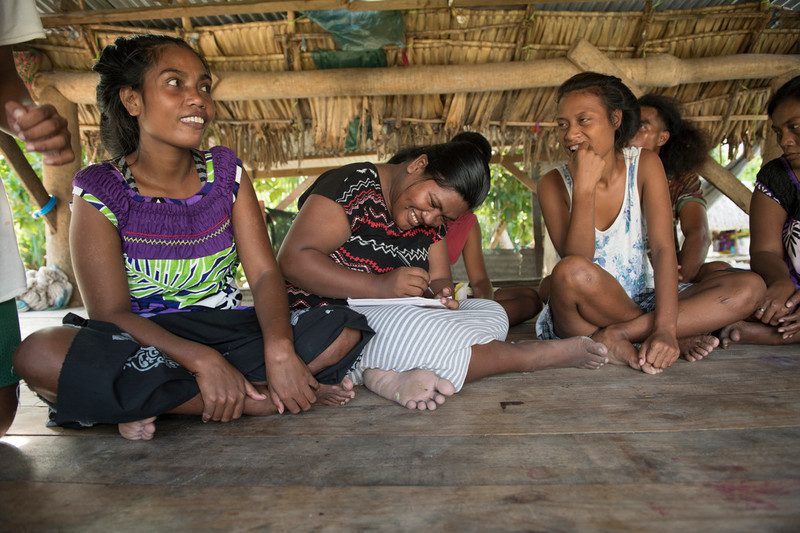
Beitau, youth volunteer
Beitau is the Chairperson of the Humanitarian Youth Club.
“I was lucky to be selected as Chairperson as the Humanitarian Youth Club. I feel like I get more respect from the community now I am in this position. I would love advanced training on leadership now, to further assist the club. As I am the Chairperson of the HYC, my main target is to help people during a disaster. I have attended training through KFHA. What I took from this is that when a disaster strikes, we have to do our best for pregnant women, small children and people with disabilities. They more vulnerable and less able to survive a disaster.”
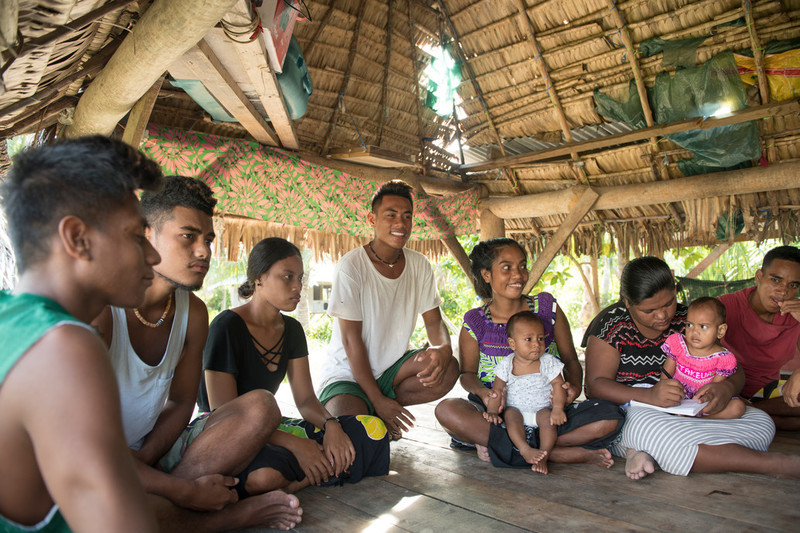
Abe, youth officer
Abe was involved with KFHA since 2012.
“I was inspired by what they KFHA was doing and the issues they were addressing that affects youth. I was surprised to see how many young people come to the clinic as they are affected by STIs, HIV and teenage pregnancy. The lack of education here is a big problem, most people here have a lot of children and yet can’t afford to send them to school. Sexual and reproductive health is our responsibility and we must talk about it with young people. Climate change affects many countries, but Kiribati is small and low lying. I used to go visit a very nice beach with a lot of nice trees and plants. Now, the trees are gone, and the waves have taken over, and the houses have disappeared so no one can build there. In my role as a youth worker and activist, I tell people to fight climate change: to grow more mangroves, to clean up the beach, because we love our Kiribati.”
©IPPF/Hannah Maule-Ffinch/Kiribati
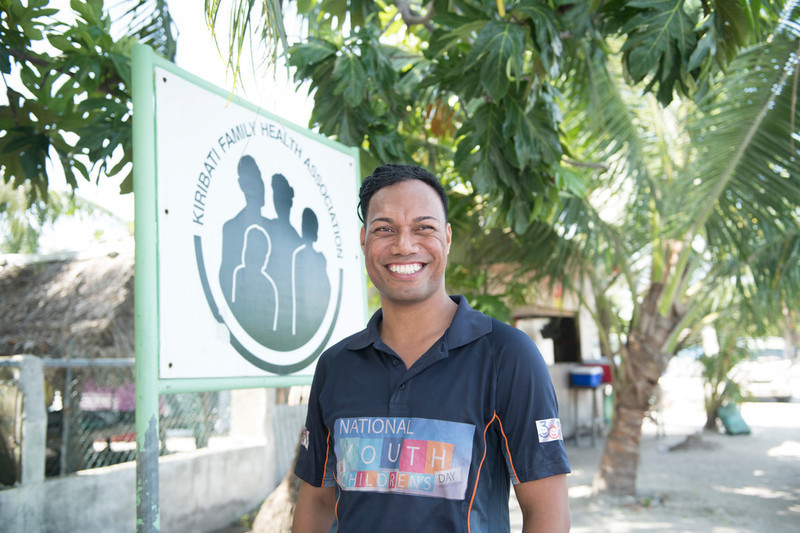
when
country
Kiribati
Subject
Emergencies
Related Member Association
Kiribati Family Health Association









